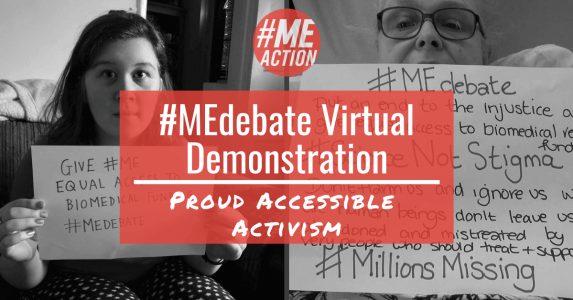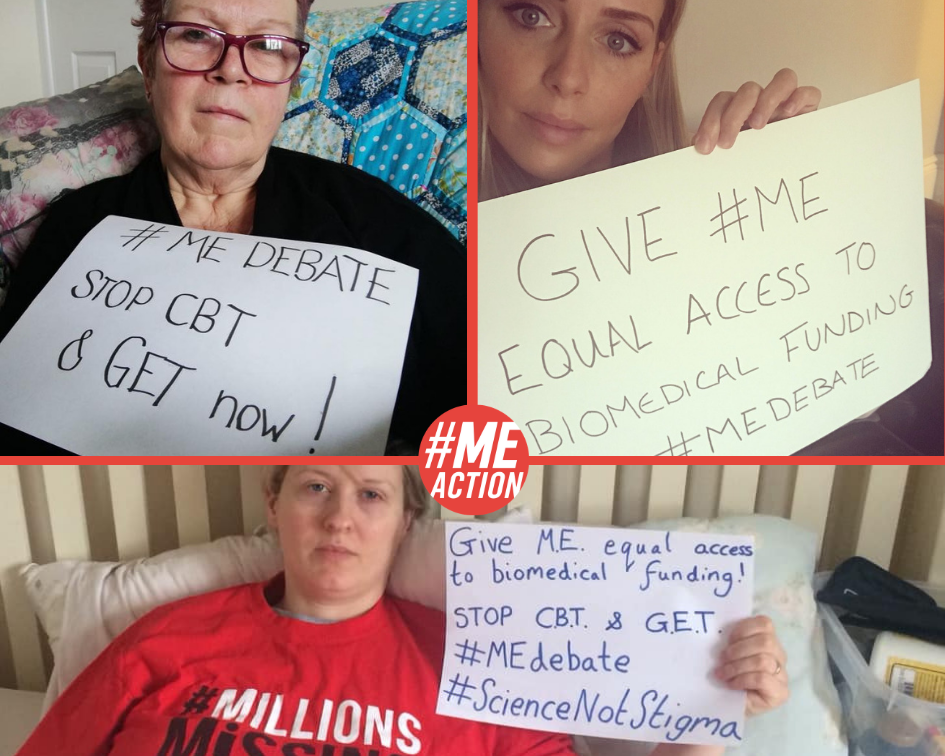Throughout history, activism and campaigning have been a driving force for positive change across the world. From civil rights to LGBTQ rights and more. However much of this has been inaccessible to large swathes of the disability community.
For the ME community – the #MillionsMissing – the nature of this illness and the stigma attached to it have together silenced us for many years. However the internet has given us an accessible means to change this and, through #MEAction, we are harnessing the online power of virtual demonstrations to support the offline advocacy we do.
From our sofas and our beds, we are more connected than ever before. By utilising social media we are now able to speak out and reach a far greater audience. Even whilst the press might focus on other matters, we can effect change in the minds of the wider public. Moving the conversation on towards the need for biomedical research funding, the suspension of Graded Exercise Therapy (GET) and Cognitive Behavioural Therapy (CBT) as treatments, updated medical training and halting the appalling use of unjustified child protection proceedings against families of children with ME.
Using the #MEAction tools provided, our community also made their voices heard before their MPs. Together, we urged MPs to attend the debate with:
- 2,921 emails to MPs
- 538 tweets to MPs
- 150 phone calls to MPs
Your voices were heard across the Internet. Our #MEdebate hashtag trended on twitter with over 8,000 mentions. Our top post on #MEAction UK reached 105,384 people! Our #MEAction UK Twitter feed made 148,500 impressions. In addition to the 40 MPs who attended the debate, at least 17 MPs tweeted out their support for people with ME.
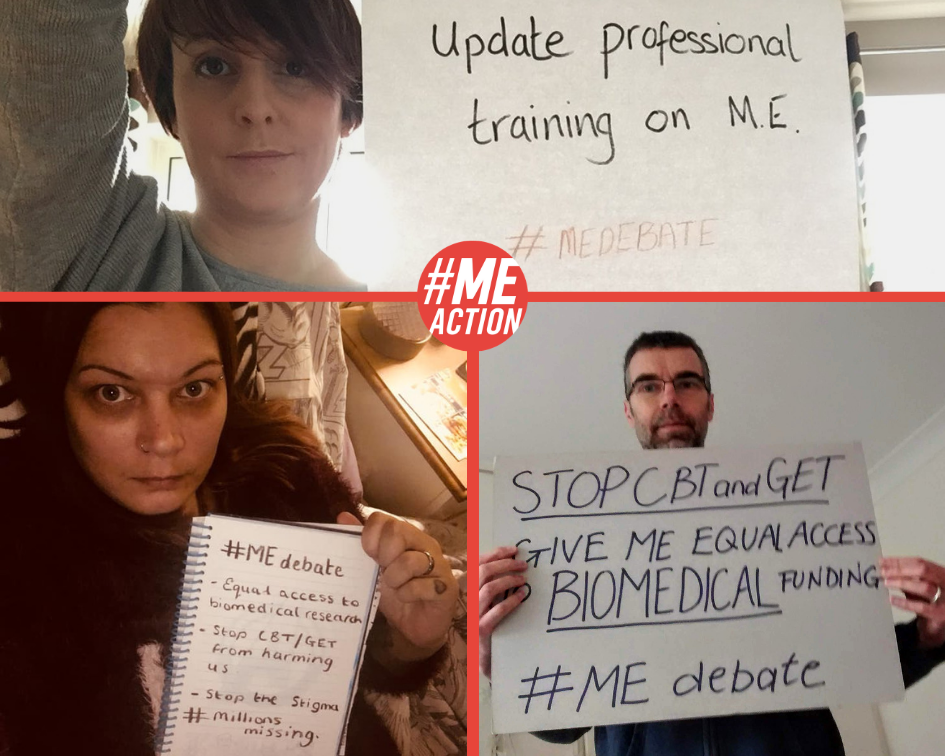
Where stigma once reigned we are now taking control of the narrative. This was exemplified on 24th January 2019, a day of proudly accessible activism in which people with ME, their families, friends and allies across the world joined the ME debate virtual demonstration in support of Carol Monaghan MPs historic motion.
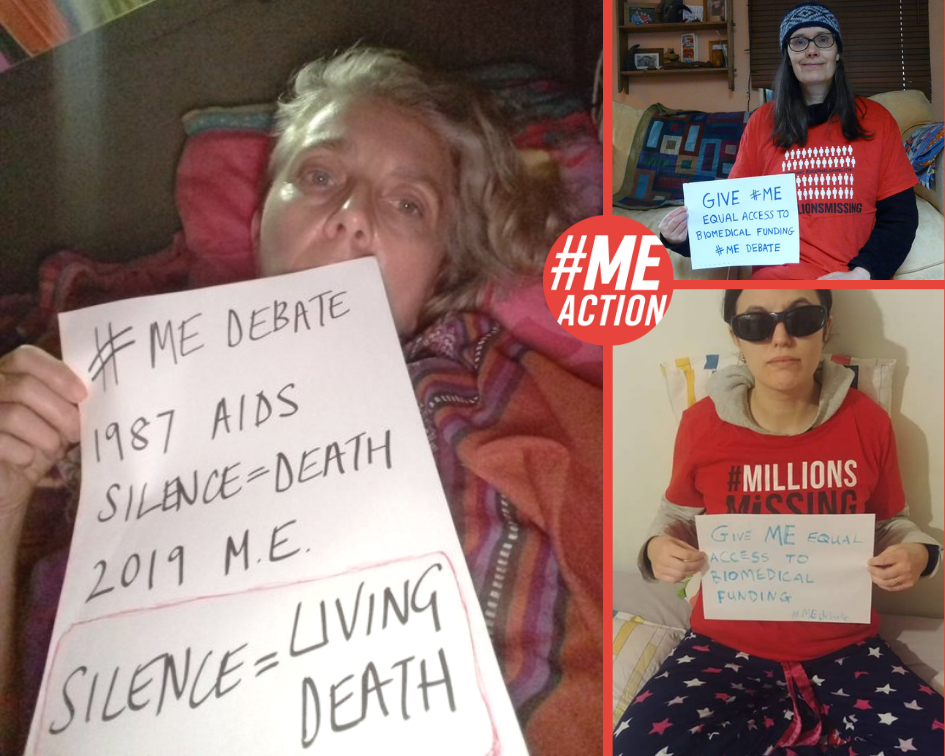
Throughout the day ever more messages of support appeared, with 17 MPs who were unable to attend joining in and tweeting their support too. Carol Monaghan MP said during the debate:
“This condition is largely unknown, because those affected are often hidden away. I commend the ME community for lobbying so successfully to ensure so many Members are here this afternoon. Ultimately, what that community wants is better treatment and care for people with ME.”
[maxbutton id=”21″ url=”https://act.meaction.net/page/8914/action/1″ text=”Follow up with your MP” ]
Why showing your face matters
We wanted to showcase some of the moving and impactful photos from this demonstration, for images play such a pivotal role in the success of online campaigns. As activists, every single person who joined this demonstration, whether posting a photo themselves or sharing photos of others, played an active role in ensuring the story of people with ME is defined by those with lived experience.
ME is becoming more widely understood as the devastating disease it is, and this groundswell of recognition will be reflected in the everyday interactions people with ME have with the public and professionals.
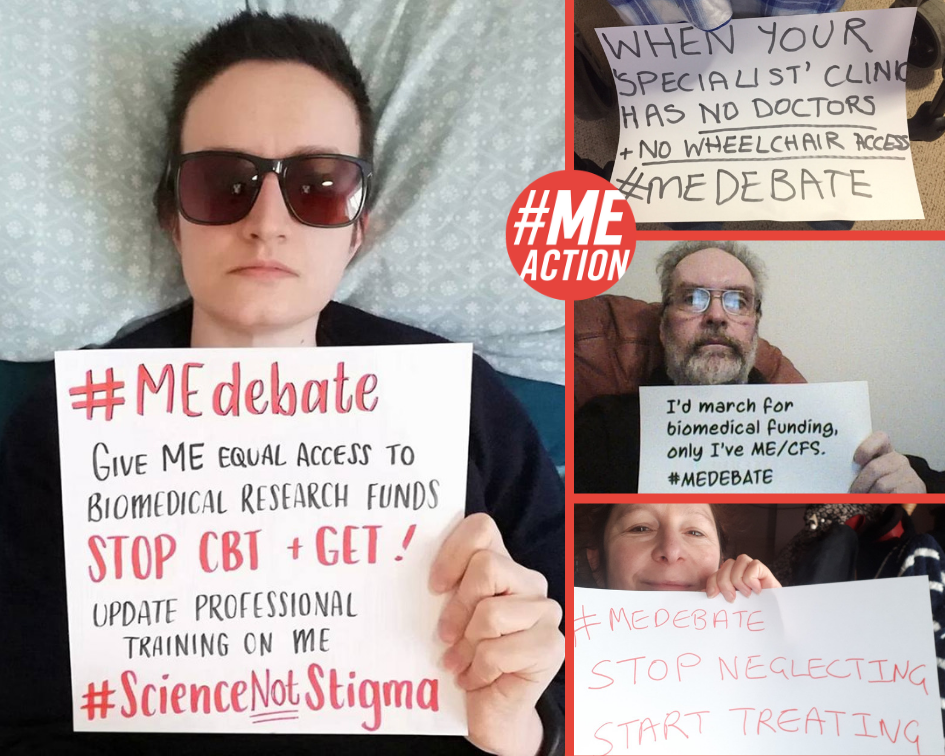
Yet, the term activist has been used to dismiss those gaining a voice as a radical, extreme minority. Those who have questioned the validity of certain studies have been labelled vexatious. People with ME in the UK have been actively discouraged by professionals from joining online communities or talking to other people with ME. These naysayers are on the wrong side of history.
Just as we should be proud to be engaged, informed patients in our doctors’ offices, we should be proud to be activists fighting for a better future for ourselves, our community and those yet to become sick. While ever we remain quiet, society can ignore us.
This demonstration was proud, accessible activism. It was our community reclaiming its right to speak out for ourselves, to tell our true story, and it reached hundreds of thousands of people.
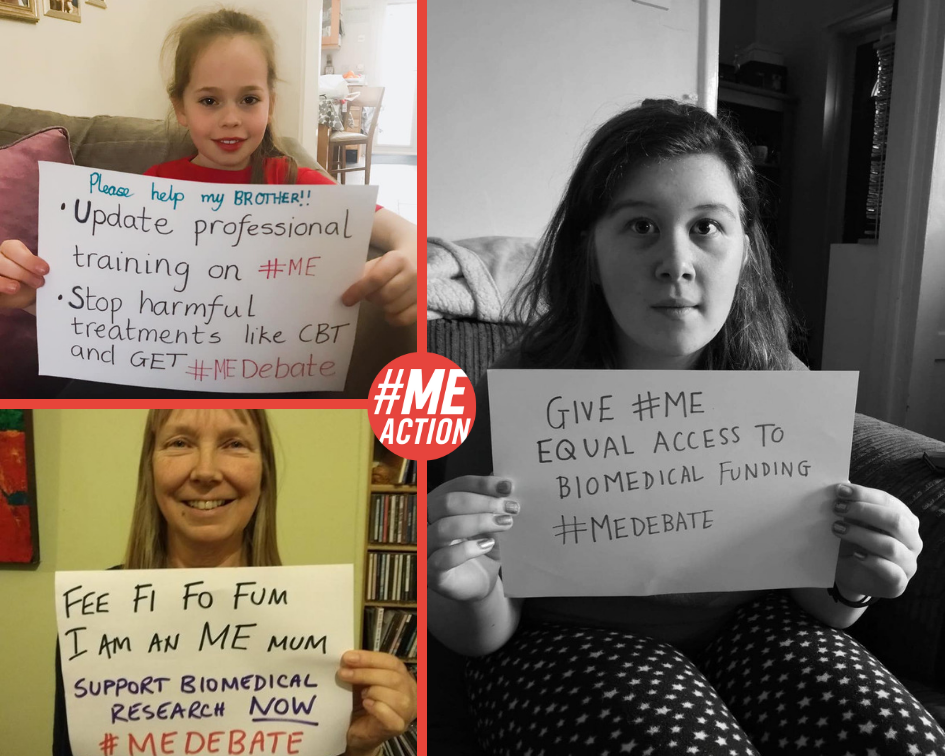
We all know this fight is by no means over, but our movement is growing. Join us now!
[maxbutton id=”21″ url=”https://act.meaction.net/page/8970/data/1″ text=”Volunteer with #MEAction” ] [maxbutton id=”21″ url=”https://www.meaction.net/grow-our-uk-team/” text=”Donate to #MEAction” ]


